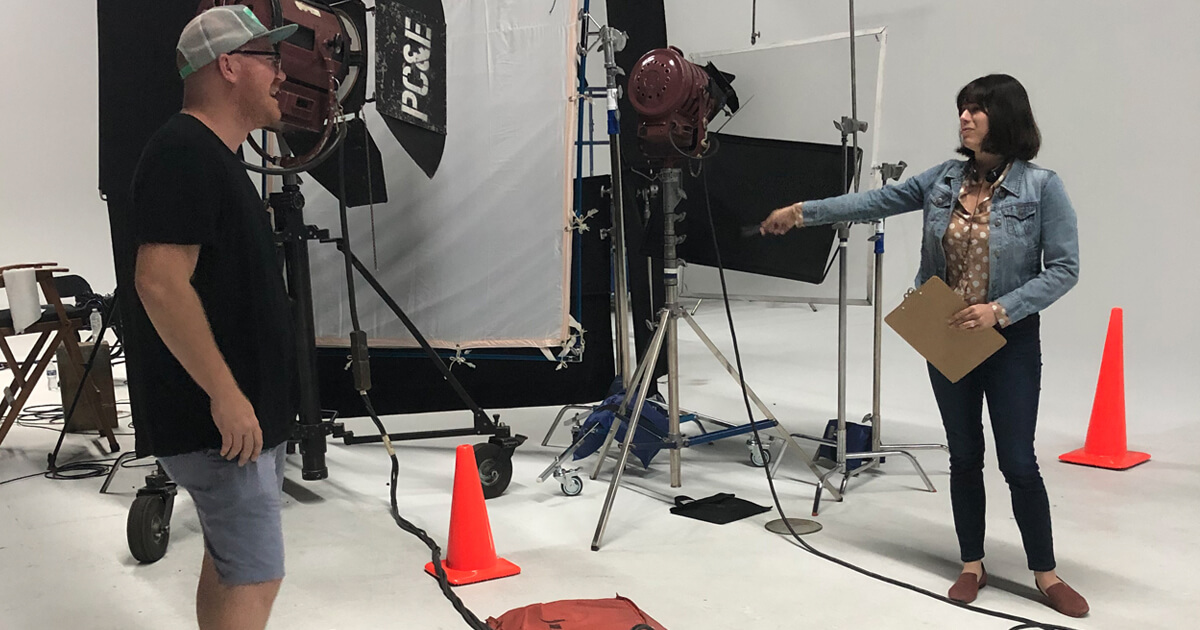Exactly How Event Production Works: A Comprehensive Consider the Refine
Event production is a complicated and organized procedure that needs cautious planning and execution. It begins with developing clear objectives and understanding the target audience. Each step, from budgeting to location choice, plays an essential duty in making sure success. As the procedure unfolds, various components must straighten flawlessly. The subtleties of this complex procedure commonly go unnoticed. What are the key stages that add to a memorable event?

The Preliminary Preparation Phase
When beginning on event production, cautious preparation is important to guarantee an effective end result. The preliminary planning stage acts as the foundation for all subsequent initiatives. During this phase, event manufacturers need to specify the event's objective and goals clearly. Identifying the target market helps customize the experience and messaging, assuring relevance and engagement.Producers have to additionally consider the event format, whether it be in-person, digital, or crossbreed, as this will certainly affect different logistical elements. Selecting an ideal date and location is vital, as it influences access and availability.Furthermore, setting up a trusted group is basic for separating obligations and simplifying communication. Establishing a timeline with turning points guarantees all tasks are finished on timetable. This stage entails extensive research study, consisting of identifying potential obstacles and developing methods to minimize dangers. Ultimately, a well-structured first preparation stage establishes the tone for a successful event production journey.

Budgeting and Resource Appropriation
In event production, efficient budgeting and source appropriation are crucial for success - event production charlotte. Developing financial specifications sets the foundation for all subsequent decisions, while resource circulation strategies ensure that every component of the event is adequately sustained. Together, these components help maintain control over expenses and optimize the usage of readily available sources
Developing Financial Parameters
Developing financial specifications is vital to the success of any kind of event production, as it sets the foundation for reliable budgeting and resource allocation. This procedure starts with specifying the overall budget plan, which encompasses all aspects of the event, consisting of place prices, event catering, and marketing. By recognizing available funds, event planners can prioritize expenses and allocate resources as necessary. Furthermore, it is important to carry out detailed marketing research to prepare for potential expenses and recognize financing resources, such as sponsorships or ticket sales. Developing clear economic criteria also aids in threat management, permitting organizers to allot backup funds for unexpected costs. Ultimately, a distinct budget plan functions as a roadmap, directing the event production team in the direction of attaining their goals while preserving financial control.
Source Distribution Techniques
Reliable source circulation approaches are important for making the most of the impact of an event while sticking to budget plan constraints. Effective event production needs a thorough method to budgeting and source appropriation. Coordinators need to focus on vital elements such as place, food catering, and innovation, guaranteeing that funds are designated to areas that enhance participant experience. A thorough spending plan must lay out anticipated expenditures and determine locations for prospective expense savings, such as working out with suppliers or exploring sponsorship chances. Additionally, tracking expenses throughout the preparation process aids prevent overspending. By employing calculated resource circulation, event producers can deliver an unforgettable experience while maintaining fiscal duty, inevitably adding to the overall success of the event.
Place Option and Logistics
Choosing the best location is important to the success of any kind of event, as it establishes the stage for the total experience. Location option involves examining numerous variables, including ability, availability, and place. Planners should think about the target market and the nature of the event, ensuring the venue aligns with the event's goals.Logistics play a considerable duty in this process, involving arrangements for seating, audiovisual devices, and providing solutions. An appropriate location ought to promote smooth circulation for guests and personnel, improving engagement.Additionally, reviewing potential venues for facilities like car parking, bathrooms, and emergency situation leaves is necessary for safety and convenience. The timeline for safeguarding the place is likewise critical, as preferred places might reserve quickly - event production charlotte. Consequently, complete preparation and timely implementation can inevitably add to a smooth event experience, making location choice and logistics basic elements of effective event production
Creative Idea Development
While the place sets the physical phase, imaginative idea advancement forms the event's identification and narrative. This process starts with recognizing the event's purpose and target market, allowing event manufacturers to create an engaging theme that resonates with attendees. Brainstorming sessions usually include diverse viewpoints, cultivating cutting-edge concepts that line up with the event's goals.Once a motif is developed, visual elements such as shade schemes, signage, and decor are developed to improve the overall ambience. Storytelling methods might also be incorporated to develop an interesting journey for individuals, ensuring a memorable experience. In addition, factors to consider regarding amusement, activities, and interactive components are aligned with the picked concept, reinforcing the style throughout the event.Ultimately, reliable imaginative idea advancement assurances that every facet of the event functions cohesively, leaving a long-term impression on guests and satisfying the official source event's goals. This fundamental job prepares for subsequent planning and execution stages.
Collaborating With Suppliers and Suppliers
Successful event production depends upon reliable cooperation with suppliers and distributors. Selecting reputable partners, discussing agreements efficiently, and guaranteeing timely distributions are crucial action in this process. Each of these elements adds substantially to the general success and smooth execution of an event.
Choosing Reliable Partners
Just how can event coordinators assure a seamless production experience? Choosing trusted companions is essential in achieving this objective. Event coordinators need to conduct complete research to recognize vendors and vendors with a tried and tested track record of quality. This consists of inspecting recommendations, examining portfolios, and evaluating customer responses. Coordinators ought to focus on companions that show professionalism, prompt interaction, and a desire to work together. Building solid connections promotes trust fund and enables quick analytical during the event. Furthermore, it is helpful to choose neighborhood vendors that understand the place and local logistics. Ultimately, a successful event rests on the synergy between coordinators and their partners, ensuring that every facet of production runs efficiently and efficiently.
Bargaining Agreements Successfully
Effective arrangement of agreements is a crucial action in the cooperation in between event organizers and their suppliers and distributors. This process entails clear interaction of expectations, deliverables, and timelines. Planners should perform detailed research study on market prices and industry requirements to develop a standard for settlements. It is necessary to develop a joint atmosphere, encouraging open discussion regarding terms, prices, and possible contingencies. Organizers ought to also prioritize comprehending the vendor's capacities and limitations to straighten their needs successfully. Adaptability can lead to equally beneficial arrangements, fostering long-term relationships. Crafting distinct agreements that consist of certain performance metrics can assist ensure responsibility, eventually leading to effective event implementation and complete satisfaction for all celebrations involved.
Making Certain Prompt Deliveries
Prompt distributions are necessary for the smooth implementation of any kind of event, calling for attentive cooperation in between coordinators and their vendors and providers. Effective communication is vital, as it helps establish clear expectations regarding delivery routines, amounts, and particular needs. Planners frequently develop comprehensive timelines to describe essential landmarks, ensuring all events stay straightened throughout the procedure. Routine check-ins with vendors can aid recognize potential delays early, permitting aggressive services. Furthermore, building solid connections with reputable providers fosters trust and responsibility, which can lead to much better solution and prioritization. By focusing on these collective efforts, coordinators can minimize disruptions, thereby boosting the total effectiveness of event production and ensuring that all required materials and services show up as planned.
Advertising And Marketing and Promo Approaches
While organizing an event, the success of advertising and promotion methods can substantially influence attendance and engagement. Efficient methods typically include a combination of digital marketing, standard advertising, try this out and grassroots outreach. Utilizing social networks platforms permits for real-time interaction and targeted advertising, getting to certain demographics properly. Email advertising and marketing campaigns can better engage possible participants with individualized web content and reminders.Collaborations with influencers or market leaders can additionally improve integrity and expand reach. Producing appealing content, such as videos or blog sites, aids to create buzz and receive interest leading up to the event. Additionally, leveraging early-bird price cuts and unique benefits can incentivize ticket purchases.Promoting via typical channels, such as posters or neighborhood media, remains pertinent, especially in community-focused occasions. An extensive technique that incorporates multiple approaches assurances optimum exposure and interaction, inevitably adding to the event's success and the development of a remarkable experience for participants.
On-Site Implementation and Administration
On-site implementation and administration are important parts that establish the general my blog success of an occasion. Reliable coordination throughout the event ensures that all components straighten with the planned schedule. Event managers supervise logistics, including vendor coordination, tools arrangement, and guest services. Monitoring timelines and dealing with any unexpected concerns are basic for maintaining a seamless experience.The team plays a substantial function, as trained personnel are in charge of numerous jobs such as registration, information dissemination, and technological assistance. Communication among group members is vital; it cultivates a collective atmosphere and makes it possible for fast resolution of challenges.Additionally, security protocols should be complied with, safeguarding the wellness of all participants. Post-event analyses are also part of on-site management, supplying understandings for future enhancements. By concentrating on these aspects, event manufacturers can produce unforgettable experiences that fulfill or surpass attendee assumptions while attaining the event's goals.
Frequently Asked Inquiries
Exactly how Do I Pick the Right Event Style?
Selecting the appropriate event motif involves considering the target audience, event function, and place. Looking into current fads and gathering input from stakeholders can likewise inspire creative concepts that resonate and create a memorable experience.

What Prevail Mistakes in Event Production?
Usual mistakes in event production frequently consist of poor planning, bad communication among employee, budget plan mismanagement, overlooking to take right into account the audience's needs, and failing to carry out a detailed post-event evaluation for future improvements.
Exactly How Can I Gauge Event Success?
To measure event success, one can assess participant fulfillment, involvement degrees, budget adherence, and post-event comments. Secret efficiency indications, such as ticket sales and social media sites communications, additionally give important insights into general efficiency.
What Should I Do if It Moistens the Event Day?
In the event of rain on the day, the coordinator needs to execute contingency plans, such as safeguarding camping tents or relocating activities inside. Interaction with participants concerning changes is necessary to assure a smooth experience in spite of weather condition obstacles.
Exactly How Can I Ensure Guest Engagement During the Event?
